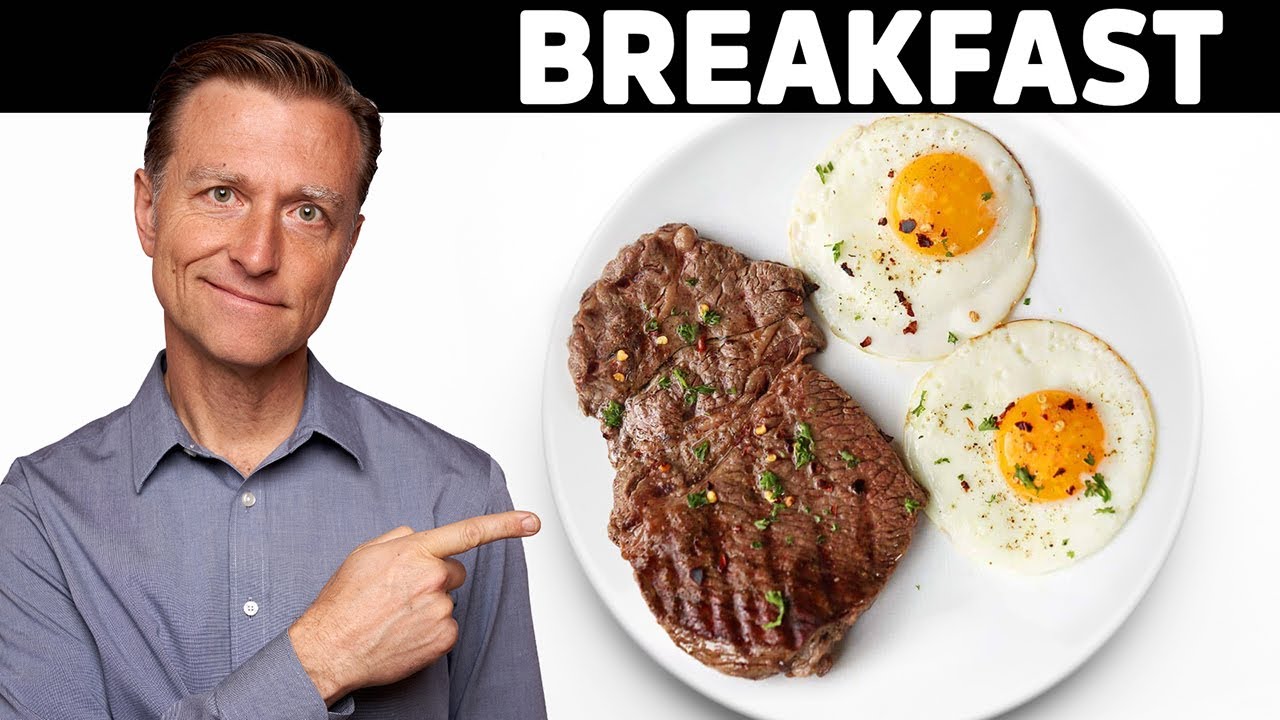Dr. Berg Discusses the Benefits of Breakfast: A Surprising Shift

Dr. Berg Discusses the Benefits of Breakfast: A Surprising Shift
Check on YouTube
Introduction
In a surprising move, Dr. Berg, known for his expertise in intermittent fasting and low-carb lifestyles, has reintroduced breakfast into his routine. Why the shift? In this post, we’ll explore the reasons behind Dr. Berg’s decision, the benefits of eating breakfast, and how you can implement a healthy breakfast strategy that complements your lifestyle.
The Shift: Why Dr. Berg Added Breakfast Back
Dr. Berg has long advocated for intermittent fasting, where breakfast is often skipped to allow for a longer fasting window. However, he recently explained that certain individuals might benefit from reintroducing breakfast, depending on their body’s needs, activity levels, and metabolic health.
For Dr. Berg, the decision to eat breakfast came down to these factors:
- Enhanced Energy Levels: A morning meal can provide immediate energy for those with high activity levels or demanding schedules.
- Improved Blood Sugar Stability: For individuals with blood sugar sensitivities, a balanced breakfast can help prevent morning energy crashes.
- Hormonal Balance: Eating breakfast might support cortisol and insulin regulation for some people.
Who Should Consider Adding Breakfast Back?
Dr. Berg emphasized that breakfast isn’t necessary for everyone, but it may benefit certain individuals, including:
- Highly Active People: Those who engage in early morning workouts or physical labor.
- People with Blood Sugar Issues: Individuals who experience dips in blood sugar after fasting.
- Those Who Struggle with Energy Levels: If skipping breakfast leaves you sluggish, reintroducing it might help.
What Does a Healthy Breakfast Look Like?
Dr. Berg highlights that not all breakfasts are created equal. If you’re going to eat breakfast, focus on a nutrient-dense, low-carb, and high-protein meal to avoid spiking blood sugar.
Here are some of Dr. Berg’s recommended breakfast options:
- Eggs with Avocado: High in healthy fats and protein, this combination keeps you full and energized.
- Keto Smoothie: Blend unsweetened almond milk, spinach, chia seeds, and a scoop of keto-friendly protein powder.
- Greek Yogurt with Nuts: A low-carb option with healthy fats and probiotics.
Benefits of Eating Breakfast
For those who decide to reintroduce breakfast, the potential benefits include:
- Increased Metabolic Flexibility: A balanced breakfast can support your body’s ability to switch between burning carbs and fats.
- Enhanced Focus: A healthy morning meal may improve cognitive function and productivity.
- Better Workout Performance: Eating breakfast before exercise can fuel your body for optimal performance.
How to Incorporate Breakfast into Your Routine
- Listen to Your Body: Pay attention to how your energy levels, hunger, and mood respond to eating breakfast.
- Start Small: If you’ve been fasting, reintroduce breakfast with a light meal, such as a smoothie or a boiled egg.
- Avoid High-Carb Foods: Stick to low-carb, high-protein, and nutrient-dense options to prevent sugar crashes.
Dr. Berg’s Balanced Approach
Dr. Berg’s decision to eat breakfast doesn’t mean he has abandoned intermittent fasting or keto principles. Instead, he’s demonstrating that flexibility is key to long-term health. By understanding your body’s unique needs, you can adjust your eating habits to support your goals without adhering to rigid rules.
Conclusion
Dr. Berg’s reintroduction of breakfast reminds us that health is not one-size-fits-all. Whether you’re following intermittent fasting or experimenting with meal timing, the key is to listen to your body and make choices that align with your lifestyle and goals. If breakfast works for you, make it a healthy, nourishing meal that fuels your day!








